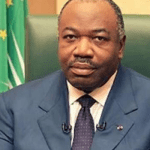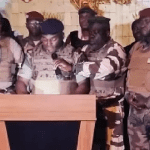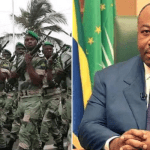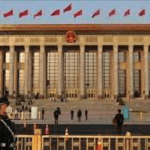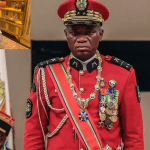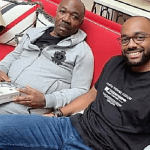Supporters of Gabonese President Ali Bongo feel that their candidate “is the choice of reason” as he kicks off his election campaign in the Owendo village.
In the presidential election scheduled for next month, the leader of Gabon, who is the favorite to win a third term, will compete against 18 other hopefuls.
Bongo is referred to as “the choice of reason” according to his supporters.
They say this has already been ascertained through his speech that he is the real president.
Bongo’s family has ruled the oil-rich West African state for 55 years.
The 64-year-old, who took over from his father Omar Bongo Ondimba in 2009, officially announced in July that he would run again for president.
The Gabonese Election Centre validated 19 out of the 27 candidacy applications received, five more than in 2016.
Bongo’s leading rivals for the top job include Alexandre Barro Chambrier of the opposition Rally for the Fatherland and Modernity (RPM) party and the National Union’s head Paulette Missambo.
The opposition failed to agree on a single candidate to challenge Bongo in the 26th August poll, but both candidates are former ministers and part of the Alter Nance 2023 coalition.
According to Eddy Minang, the city’s public prosecutor, on July 23rd, a “unidentified group” attacked activists in the eastern city of Franceville, causing numerous minor injuries.
In April, the Gabonese parliament voted to amend the constitution and reduce the president’s term from seven to five years.
With less than five weeks to go to the elections, Alter Nance 2023 has denounced modifications to the electoral code.
Prime Minister Alain-Claude Bilie-By-Nze had last week urged the opposition not to “throw oil on the fire”.
Bongo’s powerful Gabonese Democratic Party (PDG) holds strong majorities in both houses of parliament.
In 2016, the president was re-elected by a mere 5,500 votes over competitor Jean Ping, who claimed the election was rigged.
According to the administration, the presentation of the results prompted rioting in the capital Libreville, killing five people.
The presidential election will take place with elections for the National Assembly, regional and municipal governments.
Gabon is one of the richest countries in Africa in terms of GDP per capita, owing partly to its oil revenues and small population of 2.3 million people.
According to the World Bank, one-third of the population remains impoverished.
Supporters of Gabonese President Ali Bongo feel that their candidate “is the choice of reason” as he kicks off his election campaign in the Owendo village.
In the presidential election scheduled for next month, the leader of Gabon, who is the favorite to win a third term, will compete against 18 other hopefuls.
Bongo is referred to as “the choice of reason” according to his supporters.
They say this has already been ascertained through his speech that he is the real president.
Bongo’s family has ruled the oil-rich West African state for 55 years.
The 64-year-old, who took over from his father Omar Bongo Ondimba in 2009, officially announced in July that he would run again for president.
The Gabonese Election Centre validated 19 out of the 27 candidacy applications received, five more than in 2016.
Bongo’s leading rivals for the top job include Alexandre Barro Chambrier of the opposition Rally for the Fatherland and Modernity (RPM) party and the National Union’s head Paulette Missambo.
The opposition failed to agree on a single candidate to challenge Bongo in the 26th August poll, but both candidates are former ministers and part of the Alter Nance 2023 coalition.
According to Eddy Minang, the city’s public prosecutor, on July 23rd, a “unidentified group” attacked activists in the eastern city of Franceville, causing numerous minor injuries.
In April, the Gabonese parliament voted to amend the constitution and reduce the president’s term from seven to five years.
With less than five weeks to go to the elections, Alter Nance 2023 has denounced modifications to the electoral code.
Prime Minister Alain-Claude Bilie-By-Nze had last week urged the opposition not to “throw oil on the fire”.
Bongo’s powerful Gabonese Democratic Party (PDG) holds strong majorities in both houses of parliament.
In 2016, the president was re-elected by a mere 5,500 votes over competitor Jean Ping, who claimed the election was rigged.
According to the administration, the presentation of the results prompted rioting in the capital Libreville, killing five people.
The presidential election will take place with elections for the National Assembly, regional and municipal governments.
Gabon is one of the richest countries in Africa in terms of GDP per capita, owing partly to its oil revenues and small population of 2.3 million people.
According to the World Bank, one-third of the population remains impoverished.
Supporters of Gabonese President Ali Bongo feel that their candidate “is the choice of reason” as he kicks off his election campaign in the Owendo village.
In the presidential election scheduled for next month, the leader of Gabon, who is the favorite to win a third term, will compete against 18 other hopefuls.
Bongo is referred to as “the choice of reason” according to his supporters.
They say this has already been ascertained through his speech that he is the real president.
Bongo’s family has ruled the oil-rich West African state for 55 years.
The 64-year-old, who took over from his father Omar Bongo Ondimba in 2009, officially announced in July that he would run again for president.
The Gabonese Election Centre validated 19 out of the 27 candidacy applications received, five more than in 2016.
Bongo’s leading rivals for the top job include Alexandre Barro Chambrier of the opposition Rally for the Fatherland and Modernity (RPM) party and the National Union’s head Paulette Missambo.
The opposition failed to agree on a single candidate to challenge Bongo in the 26th August poll, but both candidates are former ministers and part of the Alter Nance 2023 coalition.
According to Eddy Minang, the city’s public prosecutor, on July 23rd, a “unidentified group” attacked activists in the eastern city of Franceville, causing numerous minor injuries.
In April, the Gabonese parliament voted to amend the constitution and reduce the president’s term from seven to five years.
With less than five weeks to go to the elections, Alter Nance 2023 has denounced modifications to the electoral code.
Prime Minister Alain-Claude Bilie-By-Nze had last week urged the opposition not to “throw oil on the fire”.
Bongo’s powerful Gabonese Democratic Party (PDG) holds strong majorities in both houses of parliament.
In 2016, the president was re-elected by a mere 5,500 votes over competitor Jean Ping, who claimed the election was rigged.
According to the administration, the presentation of the results prompted rioting in the capital Libreville, killing five people.
The presidential election will take place with elections for the National Assembly, regional and municipal governments.
Gabon is one of the richest countries in Africa in terms of GDP per capita, owing partly to its oil revenues and small population of 2.3 million people.
According to the World Bank, one-third of the population remains impoverished.
Supporters of Gabonese President Ali Bongo feel that their candidate “is the choice of reason” as he kicks off his election campaign in the Owendo village.
In the presidential election scheduled for next month, the leader of Gabon, who is the favorite to win a third term, will compete against 18 other hopefuls.
Bongo is referred to as “the choice of reason” according to his supporters.
They say this has already been ascertained through his speech that he is the real president.
Bongo’s family has ruled the oil-rich West African state for 55 years.
The 64-year-old, who took over from his father Omar Bongo Ondimba in 2009, officially announced in July that he would run again for president.
The Gabonese Election Centre validated 19 out of the 27 candidacy applications received, five more than in 2016.
Bongo’s leading rivals for the top job include Alexandre Barro Chambrier of the opposition Rally for the Fatherland and Modernity (RPM) party and the National Union’s head Paulette Missambo.
The opposition failed to agree on a single candidate to challenge Bongo in the 26th August poll, but both candidates are former ministers and part of the Alter Nance 2023 coalition.
According to Eddy Minang, the city’s public prosecutor, on July 23rd, a “unidentified group” attacked activists in the eastern city of Franceville, causing numerous minor injuries.
In April, the Gabonese parliament voted to amend the constitution and reduce the president’s term from seven to five years.
With less than five weeks to go to the elections, Alter Nance 2023 has denounced modifications to the electoral code.
Prime Minister Alain-Claude Bilie-By-Nze had last week urged the opposition not to “throw oil on the fire”.
Bongo’s powerful Gabonese Democratic Party (PDG) holds strong majorities in both houses of parliament.
In 2016, the president was re-elected by a mere 5,500 votes over competitor Jean Ping, who claimed the election was rigged.
According to the administration, the presentation of the results prompted rioting in the capital Libreville, killing five people.
The presidential election will take place with elections for the National Assembly, regional and municipal governments.
Gabon is one of the richest countries in Africa in terms of GDP per capita, owing partly to its oil revenues and small population of 2.3 million people.
According to the World Bank, one-third of the population remains impoverished.
Supporters of Gabonese President Ali Bongo feel that their candidate “is the choice of reason” as he kicks off his election campaign in the Owendo village.
In the presidential election scheduled for next month, the leader of Gabon, who is the favorite to win a third term, will compete against 18 other hopefuls.
Bongo is referred to as “the choice of reason” according to his supporters.
They say this has already been ascertained through his speech that he is the real president.
Bongo’s family has ruled the oil-rich West African state for 55 years.
The 64-year-old, who took over from his father Omar Bongo Ondimba in 2009, officially announced in July that he would run again for president.
The Gabonese Election Centre validated 19 out of the 27 candidacy applications received, five more than in 2016.
Bongo’s leading rivals for the top job include Alexandre Barro Chambrier of the opposition Rally for the Fatherland and Modernity (RPM) party and the National Union’s head Paulette Missambo.
The opposition failed to agree on a single candidate to challenge Bongo in the 26th August poll, but both candidates are former ministers and part of the Alter Nance 2023 coalition.
According to Eddy Minang, the city’s public prosecutor, on July 23rd, a “unidentified group” attacked activists in the eastern city of Franceville, causing numerous minor injuries.
In April, the Gabonese parliament voted to amend the constitution and reduce the president’s term from seven to five years.
With less than five weeks to go to the elections, Alter Nance 2023 has denounced modifications to the electoral code.
Prime Minister Alain-Claude Bilie-By-Nze had last week urged the opposition not to “throw oil on the fire”.
Bongo’s powerful Gabonese Democratic Party (PDG) holds strong majorities in both houses of parliament.
In 2016, the president was re-elected by a mere 5,500 votes over competitor Jean Ping, who claimed the election was rigged.
According to the administration, the presentation of the results prompted rioting in the capital Libreville, killing five people.
The presidential election will take place with elections for the National Assembly, regional and municipal governments.
Gabon is one of the richest countries in Africa in terms of GDP per capita, owing partly to its oil revenues and small population of 2.3 million people.
According to the World Bank, one-third of the population remains impoverished.
Supporters of Gabonese President Ali Bongo feel that their candidate “is the choice of reason” as he kicks off his election campaign in the Owendo village.
In the presidential election scheduled for next month, the leader of Gabon, who is the favorite to win a third term, will compete against 18 other hopefuls.
Bongo is referred to as “the choice of reason” according to his supporters.
They say this has already been ascertained through his speech that he is the real president.
Bongo’s family has ruled the oil-rich West African state for 55 years.
The 64-year-old, who took over from his father Omar Bongo Ondimba in 2009, officially announced in July that he would run again for president.
The Gabonese Election Centre validated 19 out of the 27 candidacy applications received, five more than in 2016.
Bongo’s leading rivals for the top job include Alexandre Barro Chambrier of the opposition Rally for the Fatherland and Modernity (RPM) party and the National Union’s head Paulette Missambo.
The opposition failed to agree on a single candidate to challenge Bongo in the 26th August poll, but both candidates are former ministers and part of the Alter Nance 2023 coalition.
According to Eddy Minang, the city’s public prosecutor, on July 23rd, a “unidentified group” attacked activists in the eastern city of Franceville, causing numerous minor injuries.
In April, the Gabonese parliament voted to amend the constitution and reduce the president’s term from seven to five years.
With less than five weeks to go to the elections, Alter Nance 2023 has denounced modifications to the electoral code.
Prime Minister Alain-Claude Bilie-By-Nze had last week urged the opposition not to “throw oil on the fire”.
Bongo’s powerful Gabonese Democratic Party (PDG) holds strong majorities in both houses of parliament.
In 2016, the president was re-elected by a mere 5,500 votes over competitor Jean Ping, who claimed the election was rigged.
According to the administration, the presentation of the results prompted rioting in the capital Libreville, killing five people.
The presidential election will take place with elections for the National Assembly, regional and municipal governments.
Gabon is one of the richest countries in Africa in terms of GDP per capita, owing partly to its oil revenues and small population of 2.3 million people.
According to the World Bank, one-third of the population remains impoverished.
Supporters of Gabonese President Ali Bongo feel that their candidate “is the choice of reason” as he kicks off his election campaign in the Owendo village.
In the presidential election scheduled for next month, the leader of Gabon, who is the favorite to win a third term, will compete against 18 other hopefuls.
Bongo is referred to as “the choice of reason” according to his supporters.
They say this has already been ascertained through his speech that he is the real president.
Bongo’s family has ruled the oil-rich West African state for 55 years.
The 64-year-old, who took over from his father Omar Bongo Ondimba in 2009, officially announced in July that he would run again for president.
The Gabonese Election Centre validated 19 out of the 27 candidacy applications received, five more than in 2016.
Bongo’s leading rivals for the top job include Alexandre Barro Chambrier of the opposition Rally for the Fatherland and Modernity (RPM) party and the National Union’s head Paulette Missambo.
The opposition failed to agree on a single candidate to challenge Bongo in the 26th August poll, but both candidates are former ministers and part of the Alter Nance 2023 coalition.
According to Eddy Minang, the city’s public prosecutor, on July 23rd, a “unidentified group” attacked activists in the eastern city of Franceville, causing numerous minor injuries.
In April, the Gabonese parliament voted to amend the constitution and reduce the president’s term from seven to five years.
With less than five weeks to go to the elections, Alter Nance 2023 has denounced modifications to the electoral code.
Prime Minister Alain-Claude Bilie-By-Nze had last week urged the opposition not to “throw oil on the fire”.
Bongo’s powerful Gabonese Democratic Party (PDG) holds strong majorities in both houses of parliament.
In 2016, the president was re-elected by a mere 5,500 votes over competitor Jean Ping, who claimed the election was rigged.
According to the administration, the presentation of the results prompted rioting in the capital Libreville, killing five people.
The presidential election will take place with elections for the National Assembly, regional and municipal governments.
Gabon is one of the richest countries in Africa in terms of GDP per capita, owing partly to its oil revenues and small population of 2.3 million people.
According to the World Bank, one-third of the population remains impoverished.
Supporters of Gabonese President Ali Bongo feel that their candidate “is the choice of reason” as he kicks off his election campaign in the Owendo village.
In the presidential election scheduled for next month, the leader of Gabon, who is the favorite to win a third term, will compete against 18 other hopefuls.
Bongo is referred to as “the choice of reason” according to his supporters.
They say this has already been ascertained through his speech that he is the real president.
Bongo’s family has ruled the oil-rich West African state for 55 years.
The 64-year-old, who took over from his father Omar Bongo Ondimba in 2009, officially announced in July that he would run again for president.
The Gabonese Election Centre validated 19 out of the 27 candidacy applications received, five more than in 2016.
Bongo’s leading rivals for the top job include Alexandre Barro Chambrier of the opposition Rally for the Fatherland and Modernity (RPM) party and the National Union’s head Paulette Missambo.
The opposition failed to agree on a single candidate to challenge Bongo in the 26th August poll, but both candidates are former ministers and part of the Alter Nance 2023 coalition.
According to Eddy Minang, the city’s public prosecutor, on July 23rd, a “unidentified group” attacked activists in the eastern city of Franceville, causing numerous minor injuries.
In April, the Gabonese parliament voted to amend the constitution and reduce the president’s term from seven to five years.
With less than five weeks to go to the elections, Alter Nance 2023 has denounced modifications to the electoral code.
Prime Minister Alain-Claude Bilie-By-Nze had last week urged the opposition not to “throw oil on the fire”.
Bongo’s powerful Gabonese Democratic Party (PDG) holds strong majorities in both houses of parliament.
In 2016, the president was re-elected by a mere 5,500 votes over competitor Jean Ping, who claimed the election was rigged.
According to the administration, the presentation of the results prompted rioting in the capital Libreville, killing five people.
The presidential election will take place with elections for the National Assembly, regional and municipal governments.
Gabon is one of the richest countries in Africa in terms of GDP per capita, owing partly to its oil revenues and small population of 2.3 million people.
According to the World Bank, one-third of the population remains impoverished.



